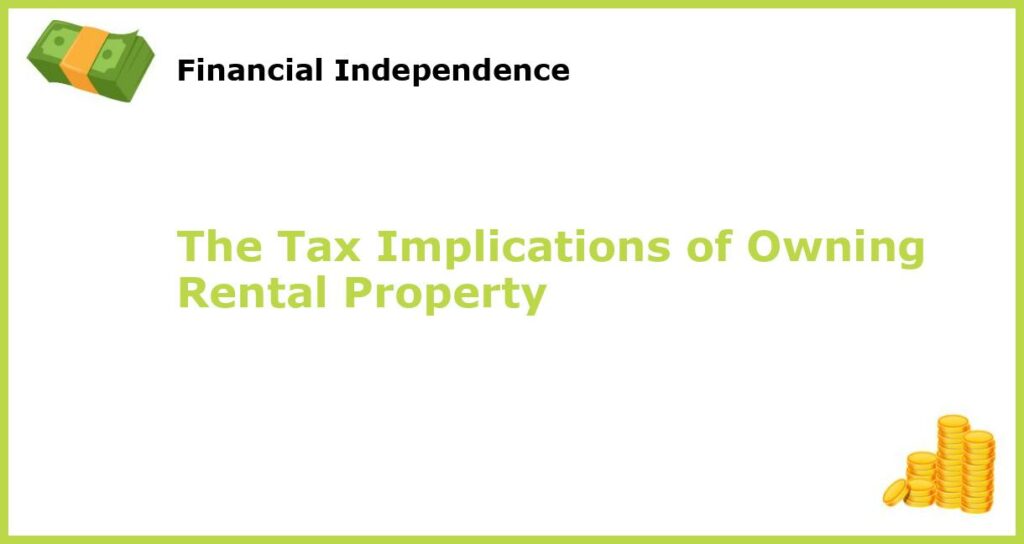Investing in rental properties can be a lucrative source of income, but it also comes with certain tax implications that owners should be aware of. Failure to understand and properly account for these taxes can lead to unexpected expenses and consequences. Here are ten important points to keep in mind when it comes to taxes and owning rental property:
1. Rental Income is Taxable

When you own a rental property, you must report all rental income on your tax return. Rental income is subject to federal income tax and state and local income taxes where applicable. This includes all payments received from tenants, including rent, security deposits, and fees for other services. It’s important to keep accurate records of all rental income received to avoid errors on tax returns and to make sure you are paying the correct amount of taxes.
2. Rental Expenses can be Deducted

While rental income is taxable, owners can deduct expenses related to owning and operating a rental property from their rental income. These can include property taxes, mortgage interest, insurance, repairs, and maintenance. It’s important to keep detailed and accurate records of these expenses, including receipts and invoices, to support the deductions claimed on tax returns.
3. Depreciation of the Property is Deductible

Owners can also deduct depreciation of the property. Depreciation is the amount that can be deducted each year to account for the wear and tear on the property over time. It’s important to understand the rules and limitations around depreciation to ensure accurate reporting on tax returns.
4. Capital Gains Tax May Apply

When an owner sells a rental property for more than they paid for it, they may be subject to capital gains tax. This tax applies to the profit made on the sale of the rental property. There are rules and exceptions that affect how much tax will be owed, so it’s important to consult with a tax professional to understand the implications of selling a rental property.
5. Active vs. Passive Income
Income from rental properties can be classified as active or passive income. Passive income is earned from rental activity where the owner is not considered materially involved. Active income is earned when the owner is considered a material participant in managing the property. Understanding the classification of rental income is important for determining how it should be reported on tax returns and what deductions may be allowable.
6. Rental Losses Can Offset Other Income
If rental expenses exceed rental income for a year, the excess can typically be deducted from other income on a tax return. This can help reduce overall tax liability. However, there are limits and qualifications for this deduction, so it’s important to consult with a tax professional to understand how losses can be used to offset other income.
7. Home Office Deduction
If a portion of a rental property is used as an office for managing the rental, some of the related expenses may be deductible as a home office deduction. However, the IRS has specific rules that apply to this deduction, and it can be complex to calculate. It’s important to consult with a tax professional to understand the rules and limitations of the home office deduction.
8. Section 179 Deduction
If equipment was purchased for use on a rental property, owners may be eligible for the Section 179 deduction. This deduction allows the entire cost of qualifying equipment to be written off in the year it was purchased, rather than depreciating the cost over time. Understanding the rules and limitations of this deduction is important for accurate tax reporting and maximizing allowable deductions.
9. State and Local Taxes
State and local taxes can vary widely, and it’s important to research and understand the tax laws in the area where the rental property is located. Some states and localities may have additional taxes, such as rental income taxes or business license taxes. Failure to understand and account for these taxes can result in costly penalties and interest charges.
10. Consult a Professional
There are many rules and regulations when it comes to owning rental property and taxes. Consulting with a qualified tax professional can provide valuable guidance for ensuring accurate tax reporting and maximizing allowable deductions. They can also help navigate more complex tax situations, such as property sales or rental losses.







